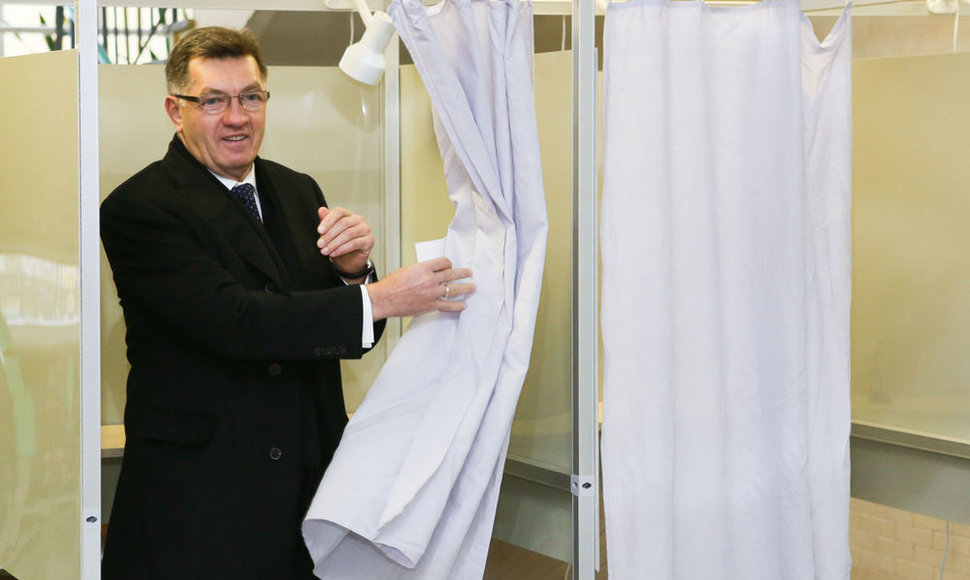"I now think that it will be center-left," Butkevičius said when asked about the future ruling coalition. He spoke to journalists after casting his ballot in the run-off ballot of parliamentary elections in Vilnius on Sunday.
"This is to enable us to move from words to specific deeds, which would be focused at certain results," he added.
In Butkevičius' words, "real income in Lithuania is decreasing among the Baltic states, while Latvia, Estonia, and Poland are far ahead of us." Asked to specify priorities of the future coalition, the social democratic leader referred to "renovation of residential buildings that virtually haven't moved from the dead point" and restructuring of the heating sector in an effort to cut heating prices.
"More aid should be made available to the sectors that stimulate production and reduce the allocations under the EU law to the areas that do not create added value," Butkevičius said on Sunday.
After the first round of parliamentary elections, three opposition parties – the Lithuanian Social Democratic Party, the Labour Party, and the Order and Justice party – signed an initial agreement to support each other's candidates during run-off voting and open consultations on the future ruling coalition.
"During the meeting of party's board later today, we will discuss various versions. If there is willingness to speak to someone else, we should inform all partners," Butkevičius said.
Asked about his odds of becoming the prime minister, the social democratic leader said the question was premature.
"I think we'll be able to discuss this at around midnight," he said, adding the odds were theoretical so far.
"I believe that those participating in the political life should think about theoretical versions as well. We're a traditional party with substantial experience on the political arena and a background in power. We have to hope," Butkevičius concluded.












